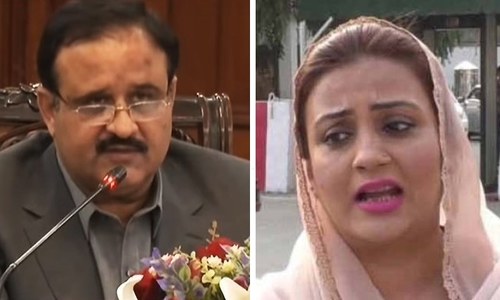ISLAMABAD: The Supreme Court has regretted that the Punjab chief minister, who appoints the vice chancellor of Agriculture University, Faisalabad, indulged in ‘pick and choose’ with a ‘pre-determined mind’ in his April 16, 2019, notification in favour of an individual who was ‘lower on merit’.
“The reasons provided by the chief minister show an exercise of pick and choose with a pre-determined mind and a conscious and deliberate effort appears to have been made to contrive reasons to appoint a person lower on merit and deprive a person better qualified, higher on merit and obviously more suitable for the post,” wrote Justice Ijaz-ul-Ahsan in his judgement.
The observation came through a judgement on an appeal filed by Dr Iqrar Ahmad Khan against a March 5, 2020, Lahore High Court order in an intra-court appeal which had restored the April 2019 notification in favour of Dr Muhammad Ashraf as new vice chancellor of the Agriculture University.
Consequently, the second tenure of Dr Iqrar as vice chancellor was upheld by the Supreme Court.
The Supreme Court bench hearing the case consists of Chief Justice Gulzar Ahmed, Justice Ijazul Ahsan and Justice Munib Akhtar.
The bench said the chief minister’s action amounted to an illegal, arbitrary, capricious and unbridled exercise of discretion. This attitude cannot be countenanced as the search committee had placed Dr Iqrar Khan, the petitioner, on top of the merit list.
Not only did Dr Iqrar top the written examination, but he also got the highest marks in the interview — the same interview in which Dr Ashraf did not perform well.
Thus the reasons given by the chief minister for the vice chancellor’s appointment lack bona fide and transparency. They are neither cogent nor show consistency in decision-making, the judgement regretted.
Referring to the second reason put forward by the chief minister for rejecting Dr Iqrar’s appointment that the petitioner was unable to hold the required number of meetings of the university syndicate, the apex court observed that since the appellant was not required to hold a specified number of syndicate meetings, he cannot be held ineligible for the position for not doing what he was not required to do under the law.
Referring to the intra-court appeal judgement in which the Lahore High Court had held that it cannot adjudicate upon the reasons given by the chief minister, the Supreme Court said this observation constituted an abdication of jurisdiction and the power of judicial review over administrative actions — a hallmark of the high court’s jurisdiction under Article 199 of the Constitution.
“We have been unable to find the basis, logical reason or rationale behind the view taken by the high court that the reasons recorded by the appointing authority do not have to undergo judicial scrutiny,” the judgement said.
The Supreme Court observed that the chief minister made no effort to examine audit paragraphs to ascertain whether they were actually related to the financial control and management ability of the petitioner.
The record reflects that the chief minister recorded a general finding without ascertaining facts with any degree of accuracy or due application of mind, the judgement said. Nothing had been shown to the court to connect the audit paras with the poor financial controls of the appellant, it added.
The record reveals that the secretary of the Punjab agriculture department — the principal accounting officer of the provincial government — was part of the search (syndicate) committee and placed the petitioner at serial number 1 on the merit list by giving him 10 out of 10 marks in the category of administrative and financial management. Moreover, the appellant was given 45 marks in the interview while Dr Ashraf secured only 31 marks.
“When the representative of the provincial government, who had first-hand knowledge of all material and relevant facts, also gave highest marks to the appellant and low marks to the respondent [Dr Ashraf], we do not see why the appellant was not appointed and that too without cogent and convicting reasons,” the judgement said.
Published in Dawn, July 15th, 2021














































